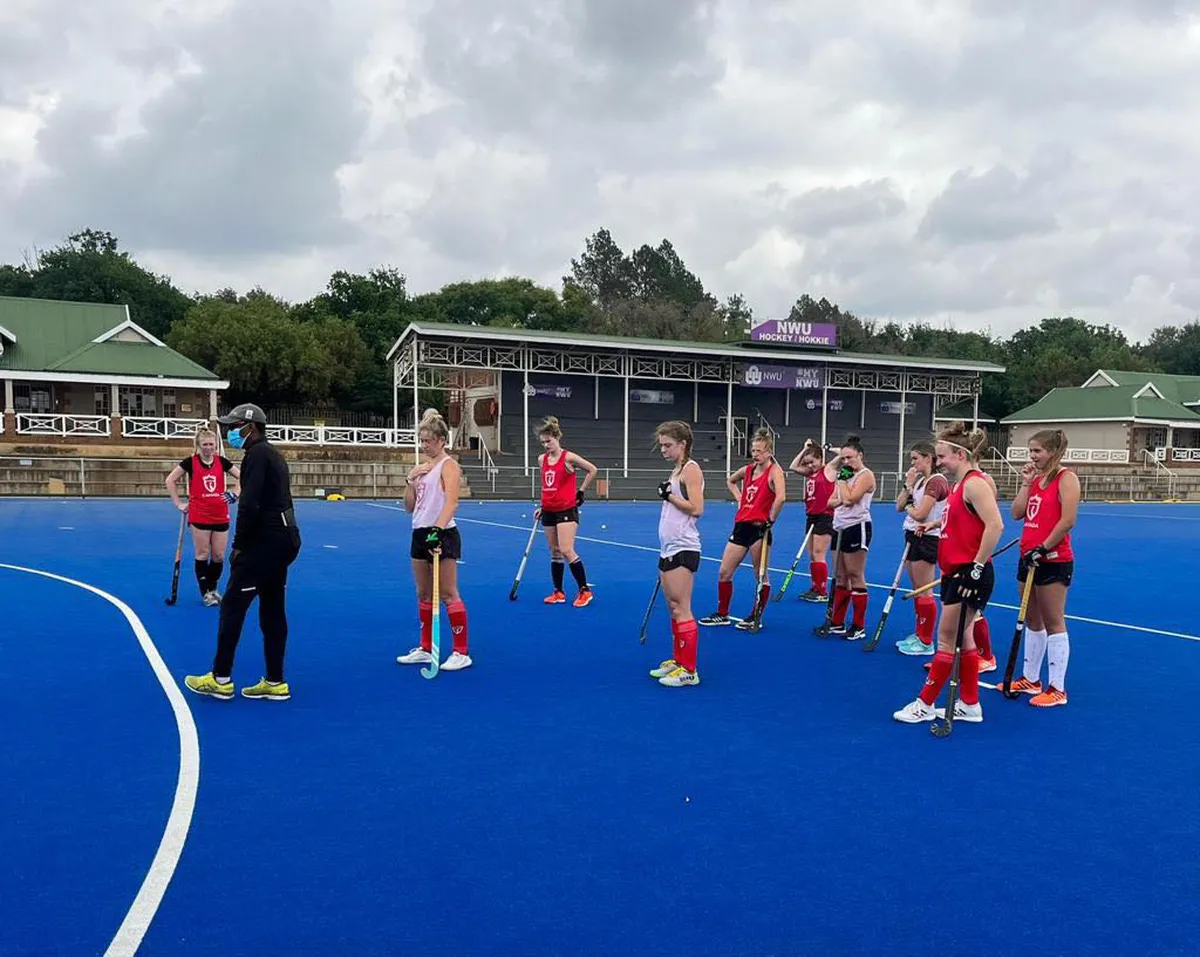
Members of Canada’s junior women’s field hockey team arrived in Potchefstroom, South Africa, last Monday to prepare for the Junior World Cup. The tournament, scheduled for Dec. 5-17, was cancelled due to the new COVID-19 variant Omicron and the team is now stranded because of travel bans.
FIELD HOCKEY CANADA
The Omicron variant has arrived in Canada, with two cases identified in Ontario just days after Ottawa and other governments imposed travel bans prohibiting entry by foreign nationals from several countries in southern Africa, where it apparently first emerged.
The two cases are in Ottawa and linked to recent travel from Nigeria, according to a statement Sunday from Ontario Health Minister Christine Elliott and Kieran Moore, the province’s Chief Medical Officer of Health. Ottawa Public Health is conducting case and contact management, and the patients are in isolation, the statement said.
The Public Health Agency of Canada said genomic monitoring, as well as border surveillance, identified the cases. The agency said early data suggest the Omicron variant may be more transmissible than earlier iterations of SARS-CoV-2, the coronavirus that causes COVID-19. The World Health Organization has designated it a variant of concern, as it contains dozens of mutations that scientists worry may allow it to evade vaccines, though evidence is limited at this time.
Federal Health Minister Jean-Yves Duclos will meet with his G7 counterparts on Monday to discuss the new variant, his office said.
The travel bans have left some Canadians stranded abroad, including members of Canada’s junior women’s field hockey team, who are in South Africa to play in a world cup tournament.
Members of the team spent almost two days travelling from Victoria to Potchefstroom, South Africa, eager to represent Team Canada at the Women’s FIH Hockey Junior World Cup. By Sunday, the tournament had been called off and flights home were cancelled. The athletes, all between 18 and 21 years of age, were struggling with shock and disappointment – and worried about what comes next.
“It’s obviously quite scary, knowing that there’s not any flights coming in and out of South Africa at the moment,” said 21-year-old Stefanie Sajko of Victoria.
She said players received a call from Minister of Sport Pascale St-Onge on Saturday.
“She can’t guarantee or promise anything but she was very helpful in terms of saying that she is there for us,” she said. “She’s wanting us to know that they’re doing everything they can to help us.”
Nora Struchtrup, 19, said the team will need permission from other countries to land and then connect to Canada because there are no direct flights.
A statement from Global Affairs Canada said it is aware of Canadians who have been affected by the new travel measures, though it declined to provide specifics because of privacy considerations.
Susan Ahrens, the chief executive officer of Field Hockey Canada, said the organization is in constant contact with people on the ground in South Africa and with its system partners in Canada to co-ordinate a speedy and safe repatriation for the team.
“It’s speculation to put a timeline out,” she said. “We expect this to be a week to get things organized. But, again, these timelines aren’t within our control, and we need to wait on our government partners for information coming out in the next 24 hours.”
She noted the team consists of 25 members, including athletes, coaches and staff.
Ms. Struchtrup, also from Victoria, said several of her teammates broke down when they learned about the cancellation of the tournament, which was scheduled for Dec. 5-16.
“We’ve all put a ton of work into it. We’re all really looking forward to it. We wanted to do it for each other. We wanted to do it for our families,” she said.
But “we never doubted that it was the right decision.”
The Omicron variant was reported last week in multiple locations in Africa, where it has been linked to a steep rise in the number of infections. It has also been identified in travellers to Belgium, Botswana, Hong Kong and Israel.
Canadian officials said it is expected that other cases will be found in Canada, but that vaccines and public-health measures continue to work to contain the spread of COVID-19.
Ms. Struchtrup said she and her teammates are doing well and feel safe in their training camp at North-West University because they have a very small bubble. The team is still practising and is being well taken care of by local hosts, she added.
“They threw us a little, like, traditional South African barbecue last night to help raise our spirits,“ she said.
“We really are in the best-case scenario of the worst-case scenario.”
XIAO XU
LAURA STONE, QUEEN’S PARK REPORTER
The Globe and Mail, November 28, 2021
